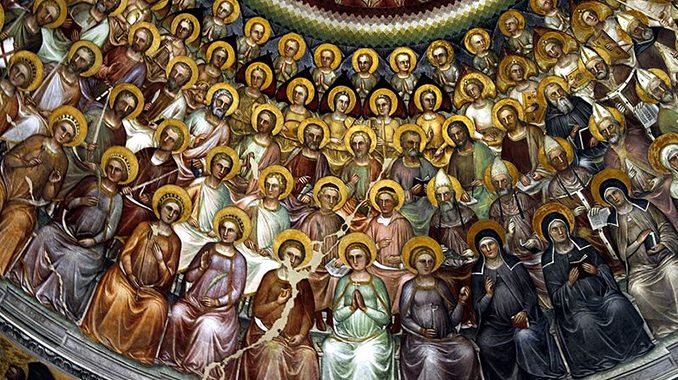The episcopal college and its head, the Pope
When Christ instituted the Twelve, "he constituted [them] in the form of a college or permanent assembly, at the head of which he placed Peter, chosen from among them. Just as by the Lord's institution, St. Peter and the rest of the apostles constitute a single apostolic college, so in like fashion the Roman Pontiff, Peter's successor, and the bishops, the successors of the apostles, are related with and united to one another.
| Download Deborah Lukalu Je Dis Non Mp3 |
The Lord made Simon alone, whom he named Peter, the "rock" of his Church. He gave him the keys of his Church and instituted him shepherd of the whole flock. The office of binding and loosing which was given to Peter was also assigned to the college of apostles united to its head. This pastoral office of Peter and the other apostles belongs to the Church's very foundation and is continued by the bishops under the primacy of the Pope.
The Pope, Bishop of Rome and Peter's successor, is the perpetual and visible source and foundation of the unity both of the bishops and of the whole company of the faithful. For the Roman Pontiff, by reason of his office as Vicar of Christ, and as pastor of the entire Church has full, supreme, and universal power over the whole Church, a power which he can always exercise unhindered.
| Download Yatosha Mp3 |
The college or body of bishops has no authority unless united with the Roman Pontiff, Peter's successor, as its head. As such, this college has supreme and full authority over the universal Church; but this power cannot be exercised without the agreement of the Roman Pontiff.
The college of bishops exercises power over the universal Church in a solemn manner in an ecumenical council. But there never is an ecumenical council which is not confirmed or at least recognized as such by Peter's successor.
This college, in so far as it is composed of many members, is the expression of the variety and universality of the People of God; and of the unity of the flock of Christ, in so far as it is assembled under one head.
Our Lord tied the forgiveness of sins to faith and Baptism: Go into all the world and preach the gospel to the whole creation. He who believes and is baptized will be saved. Baptism is the first and chief sacrament of forgiveness of sins because it unites us with Christ, who died for our sins and rose for our justification, so that "we too might walk in newness of life.
| Download Maverick City Music Kirk Franklin Bless Me Mp3 |
When we made our first profession of faith while receiving the holy Baptism that cleansed us, the forgiveness we received then was so full and complete that there remained in us absolutely nothing left to efface, neither original sin nor offenses committed by our own will, nor was there left any penalty to suffer in order to expiate them.
Yet the grace of Baptism delivers no one from all the weakness of nature. On the contrary, we must still combat the movements of concupiscence that never cease leading us into evil.
In this battle against our inclination towards evil, who could be brave and watchful enough to escape every wound of sin? If the Church has the power to forgive sins, then Baptism cannot be her only means of using the keys of the Kingdom of heaven received from Jesus Christ. the Church must be able to forgive all penitents their offenses, even if they should sin until the last moment of their lives.
It is through the sacrament of Penance that the baptized can be reconciled with God and with the Church: Penance has rightly been called by the holy Fathers a laborious kind of baptism.
This sacrament of Penance is necessary for salvation for those who have fallen after Baptism, just as Baptism is necessary for salvation for those who have not yet been reborn

